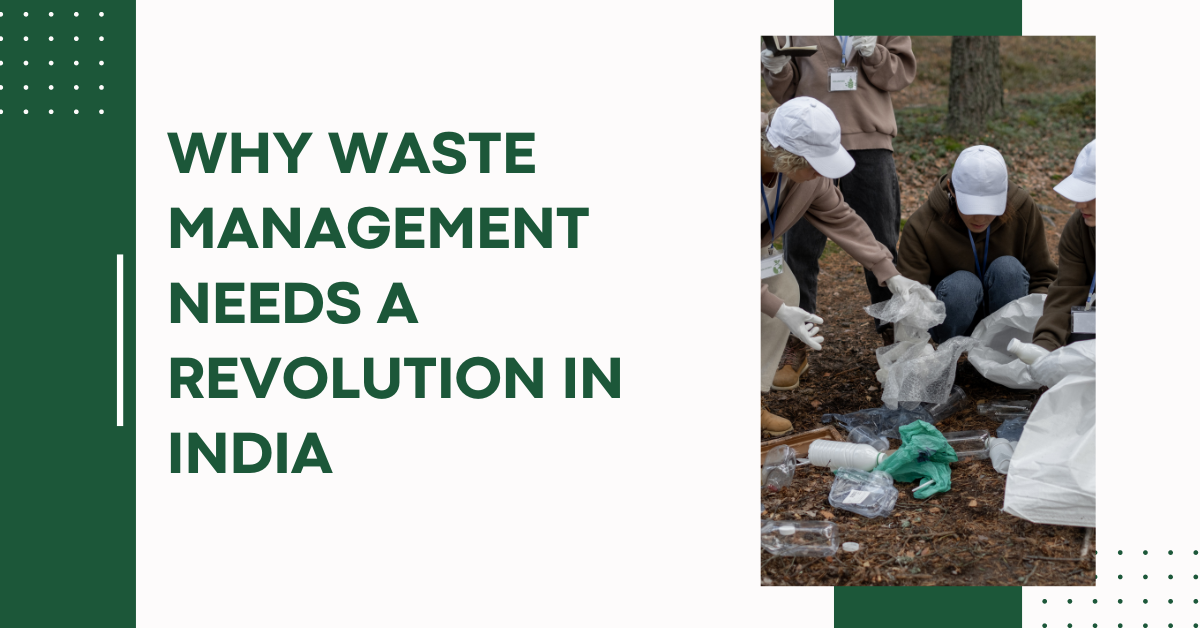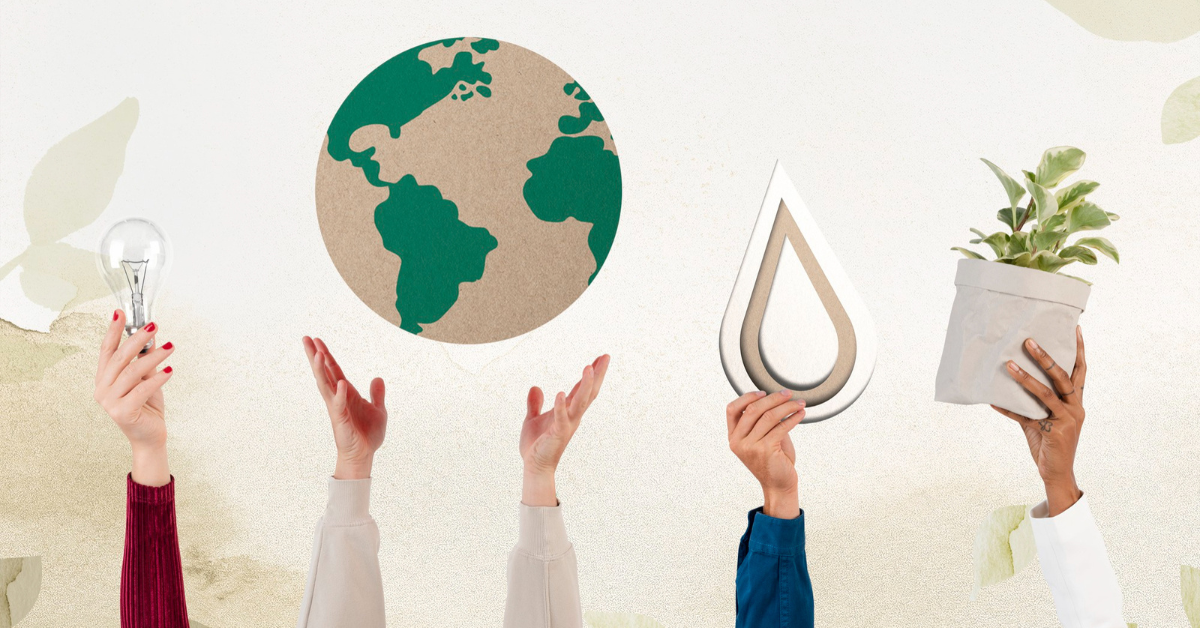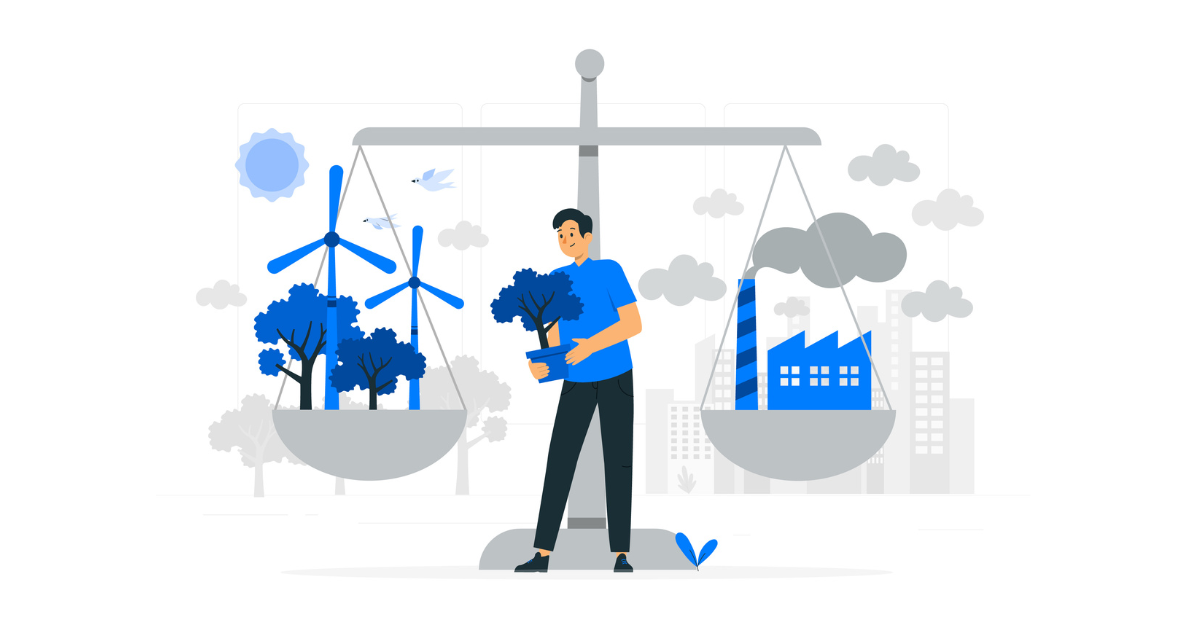The planet is getting warmer. The implications are indisputable and the proof is unquestionable. However, it’s simple to feel...
India, a country with a thriving culture and extensive history, is facing an increasing problem with garbage management. Waste generation is approaching critical levels due to increased urbanisation and an ever-growing population. The existing system is having trouble keeping up because of its many inefficiencies and antiquated procedures. Not only is a revolution in waste management required, but it is also a national obligation.
The Imminent Crisis: Increasing Waste Mountains
Over 62 million tonnes of rubbish are produced in India each year, which is astounding [source: Central Pollution Control Board]. This corresponds to about 400 grams per person every day, and this amount is expected to increase.
The improper source segmentation exacerbates the problem. Waste that is both biodegradable and non-biodegradable is frequently combined, which makes processing and disposal challenging. When this mixed garbage is dumped in landfills, it contaminates the water and soil, harming the ecosystem. Another common practice is the open burning of rubbish, which releases dangerous toxins into the atmosphere, harming human health and accelerating climate change.
A closer look at the issues ailing India’s waste management system is provided below:
Inadequate Collection and Transportation: Particularly in peri-urban areas, inadequate infrastructure and labor force result in partial garbage collection. As a result, trash heaps deteriorate, drawing pests that spread disease and resulting in unhygienic circumstances.
Absence of Processing and Treatment Facilities: India is devoid of a strong network of waste-to-energy, recycling, and composting facilities. As a result, there is a significant reliance on landfills, which are rapidly filling up.
Informal Waste Pickers: Although they are essential to the waste collection process, informal waste pickers frequently operate in hazardous environments and are not provided with protective gear or health benefits.
Beyond Landfills: An Ideation for an India Sensible to Waste
A significant change is required in India’s waste management situation. From garbage generation to disposal, we want a transformation that places a premium on a comprehensive strategy. Some salient features of this revolution are as follows:
Source Segregation: It’s critical to teach businesses and people how to properly separate their trash. The effectiveness of waste management can be greatly increased by using a two-bin system at the source that separates biodegradable and non-biodegradable waste.
Decentralized Processing: You can speed processing and save money on transportation by placing smaller processing units closer to the locations where trash is generated. Reliance on landfills can be reduced by using composting facilities for biodegradable trash and waste-to-energy plants for non-biodegradable garbage.
Giving Informal Waste Pickers More influence: Giving informal waste pickers more influence inside the official system can enhance their living and working situations. Enabling them with social security, equipment, and training can help build a waste management ecosystem that is more sustainable and effective.
Producer Responsibility: Manufacturers might be encouraged to design items that are simpler to recycle or reuse by enacting Extended Producer Responsibility (EPR) laws. By doing this, the initial waste generation can be greatly decreased.
Public Participation and Awareness: It is essential to educate the public about the value of recycling, reuse, and trash reduction. Community projects and educational efforts can motivate people to participate in ethical waste management techniques.
Technology as a Change-Catalyst
Technology has the potential to significantly transform waste management in India. Here are a few encouraging paths:
Smart Bins: By optimizing collection routes and monitoring waste levels, sensor-based bins can ensure effective waste pickup.
Apps for trash management: Mobile applications can help residents exchange recyclable products, learn more about waste segregation, and connect with waste collection agencies.
Blockchain Technology: By tracking garbage from its origin to its disposal, blockchain technology helps to maintain accountability and transparency in the waste management system.
A Revolution with Benefits Beyond Waste
A successful waste management revolution in India will not just address the growing waste crisis, but will also unlock a multitude of benefits:
Environmental Sustainability: Proper waste management will reduce pollution, conserve land resources, and contribute to a cleaner and healthier environment.
Public Health Improvement: Effective waste management will lead to cleaner surroundings, reducing the spread of diseases and improving overall public health.
Economic Opportunities: A robust waste management system can create new job opportunities in the waste collection, processing, and recycling sectors.
Resource Recovery: Recycling and composting can turn waste into valuable resources, reducing dependence on virgin materials and promoting a circular economy.
In summary, a joint endeavor towards a sustainable future
India has to revolutionize garbage management, and this will require cooperation from the public sector, private sector, and citizens. India may make progress toward a more sustainable future in which trash is utilized as a resource rather than a burden by putting the above-mentioned solutions into practice. Let’s seize this opportunity to create a more prosperous, healthier, and clean India for future generations.




